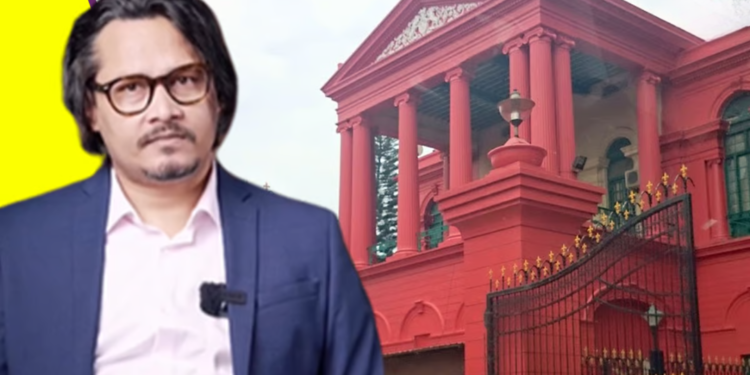Karnataka High Court Stays Probe Against Ajeet Bharti for Remarks on Rahul Gandhi
On Monday, the Karnataka High Court stayed the case filed against journalist Ajeet Bharti, who was booked for spreading false information about Congress leader and Member of Parliament Rahul Gandhi [Ajit Bharti v State of Karnataka].
Justice M. Nagaprasanna noted that the core issue revolved around the truthfulness of the claims made by national newspapers, which Bharti had shared.
“If the tweet is a result of certain newspaper reports, which were also claims by certain former Congress leaders, and the petitioner also tweeted regarding such claims, it becomes a claim versus claim. Therefore, the genesis of the problem lies in the claim, which resulted in the petitioner’s tweet,” the Court recorded.
The FIR against Bharti was filed by BK Bopanna, legal unit secretary of the Karnataka Pradesh Congress Committee (KPCC), alleging that Bharti had spread false information through his X handle.
The complaint mentioned that Bharti posted a video claiming Rahul Gandhi intended to replace the Ram Mandir in Ayodhya with the Babri Masjid.
Consequently, an FIR under Sections 153-A (promoting enmity between different groups) and 505(2) (statements creating or promoting enmity, hatred, or ill-will between classes) of the Indian Penal Code (IPC) was registered against Bharti. Aggrieved by this, Bharti moved the High Court.
Senior Advocate M. Aruna Shyam, representing Bharti, argued that Bharti acted within his fundamental rights under the Constitution and that the complainant’s conduct amounted to an infringement of the freedom of expression. She, therefore, sought to quash the complaint.
The Court stated that the core issue was the truthfulness of the newspaper reports and determined that further investigation could not be permitted unless the truthfulness of the claims was verified.
“Therefore, it is for the learned SPP to establish the truthfulness or otherwise of the claims made by the ex-Congressman. Until such verification is done, no further investigation can be permitted against the petitioner,” the Court said.
The Court will hear the matter further on July 19.

















